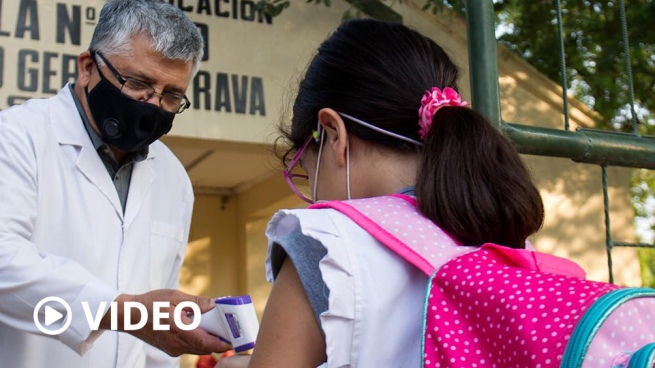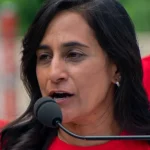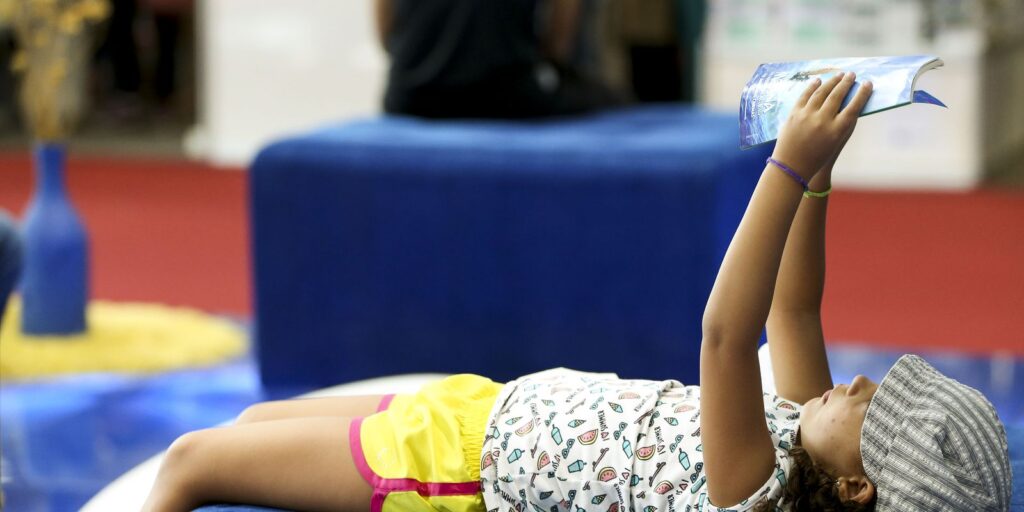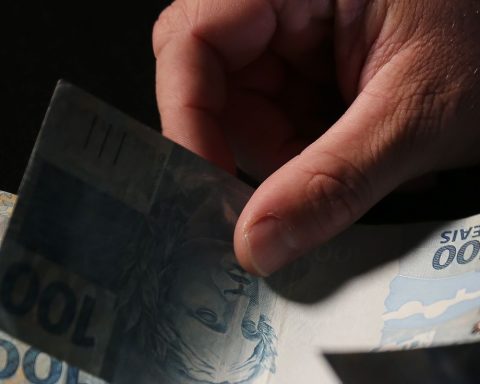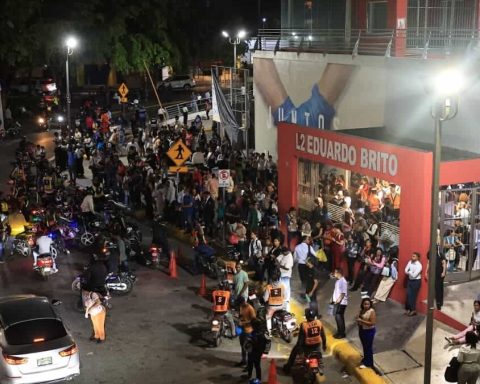The provinces are preparing to implement the “Careful and Safe Classroom” protocol at the start of face-to-face classes throughout the country, with constant monitoring of the epidemiological situation by the Ministries of Health and Education of each district.
This was assured to Télam correspondents by provincial officials who agreed that, in general, they will follow the guidelines that the representatives of the 24 districts agreed with the Nation within the framework of the federal Health and Education councils, with minimal differences on the use of the chinstrap in some jurisdictions.
At the national level, the central points of the agreed protocol for the management and control of COVID-19 in educational establishments at the initial, primary and secondary levels are: the elimination of bubbles, the correct use of the chinstrap, constant cross ventilation in classrooms. ; and regular hygiene of environments and hands, in addition to prioritizing physical distance and collecting information on vaccination from the educational community.
Most districts will require a mandatory mask in the classroom in all grades, while the jurisdictions of Jujuy and CABA will request it from the third and fourth grades, respectively.
According to official scheduleon Monday, February 21, the school year began in the Autonomous City of Buenos Aires and the province of Mendoza, while on Wednesday, March 2, classes will begin in the rest of the provinces.
mendoza
In Mendoza, the General Director of Schools (DGE), José Thomas, expressed that the province “has been very satisfied with the established national protocol” and pointed out that “in terms of infections, we are going to act as is done in the population in between the vaccinated and unvaccinated”, which indicates that “in the presence of symptoms or general malaise associated or not with Covid-19, staff and students should not go to schools but isolate themselves”.
Autonomous City of Buenos Aires
In the Autonomous City of Buenos Aires, where the cycle began with the determination that the chinstrap will be mandatory from fourth grade onwards, the Buenos Aires Minister of Education, Soledad Acuña, considered the chinstrap as “a barrier to literacy” given that, as he argued, “to learn to read, to write, children need to be able to understand phonemes, words”.
Buenos Aires province
In Buenos Aires, the Minister of Health, Nicolás Kreplak, anticipated that as of Wednesday social distancing will be maintained “without this restricting 100% absolute presence” and will continue “with ventilation and monitoring of carbon dioxide in closed spaces and with the use of chinstraps,” and assured that 1,580 schools were visited and “150,000 children were vaccinated in schools these days.”
His pair of Buenos Aires Education, Alberto Sileoni, clarified that the health pass will not be requested to go to class and also “there will be vaccination posts in schools” to complete schemes among children and pointed out that “an effort must still be made” in the immunization campaign.
Catamarca
In Catamarca, the Minister of Education, Andrea Centurión, confirmed full adherence to the “Cared Classroom” protocol and highlighted the meetings held by the federal councils “to achieve the necessary agreements that allow the optimal and safe return to schools, guaranteeing in this way, the return to traditional education but above all, facilitating access to education for girls and boys from Catamarca”.

Cordova
In Córdoba, the mandatory use of a chinstrap will be in force at school for students from the age of six at all educational levels, public and private, while in schools in a vulnerable context, the province will provide three-layer face masks.
The student community without a complete vaccination schedule or not vaccinated will not be required to submit a negative Covid-19 test, but this certificate will be required from teachers once a week. Neither will a health pass be requested nor will the temperature be taken at the entrance to the school.
currents
In Corrientes, the Minister of Education, Práxedes López, assured that “the sanitary pass is ruled out” for the school year and indicated that a survey will be carried out on the number of students already inoculated given that, according to official data, “92 per hundred of them have already been vaccinated.
Chaco
The Ministry of Education of Chaco indicated that the cycle will begin “with the presence of students of all levels and all modalities” with the application of federal protocols and announced that the educational calendar includes 190 days of classes and will take motto “Year of memory in tribute to essential workers who have already died in the context of the COVID-19 pandemic”.
Chubut
The Minister of Education of Chubut, Florencia Perata, confirmed to Télam that “this province will adhere in all its terms to the national protocol of “Cared Classroom” and we work together with Health so that the vaccination campaign against the flu is accelerated as much as possible. covid for those who are in the school period “.
Between rivers
In Entre Ríos, the director of the General Council of Education, Martín Müller, remarked that “there will be no discrimination against those who are not vaccinated” since “they are committed to the right to education” but they “urge families who, out of responsibility social, accompany the vaccination”.
Formosa
From the Ministry of Human Development and the Ministry of Culture and Education of Formosa they presented the new protocol “Careful and Safe Classroom” which, according to the provincial Undersecretary of Communication in a statement, has two fundamental aspects of care: the complete vaccination scheme and protection measures such as the use of a mask, cross and constant ventilation, disinfection of environments and social distancing.
First registration opens #Progress 2022 for all scholarship lines
? What are the requirements to access this academic scholarship? pic.twitter.com/XzIGBn3XOu
— Ministry of Education of the Argentine Nation (@EducacionAR) February 25, 2022
Jujuy
Jujuy, meanwhile, ordered that first and second grade students of the primary level will be exempt from the mandatory use of the chinstrap.
The Minister of Education, María Teresa Bovi, pointed out that although there is adherence to the “Cared Classroom” protocol presented at the national level, “we differentiate ourselves with other novelties that we are going to plan jointly for Health and Education” for which, she remarked, “Proceedings have been taken and provisions are going to be fulfilled.”
The Pampa
In La Pampa, the Minister of Education, Pablo Maccione, confirmed that classes will be held without bubbles and with full attendance because, he said, this year “the school is going to recover to be like before the pandemic.”
The Rioja
In La Rioja, the Secretary for Educational Management, Zoraida Rodríguez, stressed that “our goal in the context of the pandemic is already pointing towards full face-to-face attendance” and told Télam that in addition to applying the Aula Cuidada plan, the recovery cycle that provided in the province since February 9 “began taking care of our teachers and students with the protocols” and “guaranteed school kits as we did last year.”
Missions
The deputy governor of Misiones, Carlos Arce, indicated that the Scientific Committee stipulated that a sworn statement will be requested, through the General Council of Education, from teachers not vaccinated against Covid, although it will be optional given that “it is not mandatory that teachers not vaccinated sign the document”.
Neuquen
In Neuquén, Governor Omar Gutiérrez indicated that “the only three measures that are still in force” to avoid contagion are “sanitization, the mask in the classrooms and ventilation; everything else returned to normal.”
Black river
The Minister of Education of Río Negro, Mercedes Jara Tracchia, assured that the cycle will take place with “full, careful and continuous face-to-face” for 230,000 students in 716 school buildings and recently pointed out that they were “finishing closing a protocol that will replace the current one in validity, based on the one signed at the federal level by the Ministers of Health and Education”.
jump
Salta, for its part, will adhere to what is established by the national protocol and according to the general director of Epidemiological Coordination, Analía Acevedo, “the health pass will not be requested from teachers or students, because the vaccine is not mandatory,” although he stressed that “From Health we recommend that they be vaccinated”, since “it is essential to avoid serious conditions and to guarantee full presence”.

San Juan
In San Juan, the Minister of Education, Cecilia Trincado, said that there “the recommendation will be to wear the mask as long as possible” and acknowledged that “there will be times when the mask should be put aside, such as in a gym class or when the boys eat in the establishment”.
saint Louis
In San Luis, the Minister of Education, María Eugenia Cataloube, pointed out that “although in the province the vaccination certificate will not be requested, it is highly advisable and this is what the experts propose, to have the complete scheme or, failing that, to have started ( anticovid vaccination), so that schools are places where the risk of contagion is very low and to be able to approach this school year differently from those we experienced in previous periods “.
Santa Cruz
Meanwhile, the government of Santa Cruz reported that, according to resolutions of the Provincial Council of Education, there will be tests for unvaccinated teachers and virtual classrooms, booklets or hybrid classes for students who did not receive any dose of the vaccine.
Santa Fe
The Santa Fe government decided to fully abide by the national protocol and also launched a plan to combat school dropouts, especially among those who start high school this year.
Santiago del Estero
Santiago del Estero fully adhered to the “Careful and Safe Classroom” protocol and, according to the Minister of Education, Mariela Nassif, “we believe that it will be a year of hard work, effort and a time with high expectations because we must work to recover “.
Land of Fire
In Tierra del Fuego, the Minister of Education, Analía Cubino, confirmed that the protocol agreed upon at the national level will be applied and stressed that “classes will begin on March 2 with great happiness on the part of the students and we also say congratulations to the families for everything what they have done, being that the teachers are already in the classrooms accompanying the secondary school children who had to recover, and all the effort they have made”.
Tucuman
In Tucumán, the school year will begin under the protocol approved by the Federal Health and Education Councils, which is why the Minister of Education, Juan Pablo Lichtmajer, led a virtual training days ago with supervisors with general recommendations to implement the local program “Salud + School = Better Future”.

